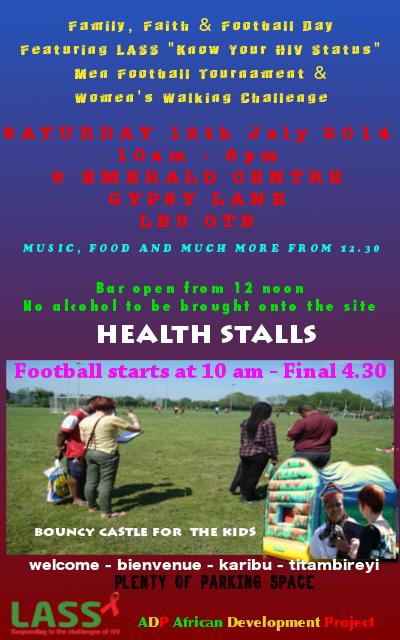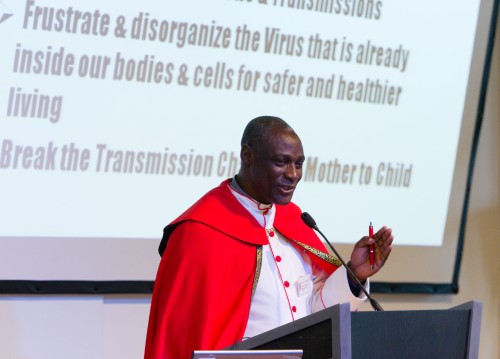
A team of haematologists has engineered a particular white blood cell to be HIV resistant after hacking the genome of induced pluripotent stem cells (iPSCs).
The technique has been published in the Proceedings of the National Academy of Sciences and was devised by Yuet Wai Kan of the University of California, former President of the American Society of Haematology, and his peers.
The white blood cell the team had ideally wanted to engineer was CD+4 T, a cell that is responsible for sending signals to other cells in the immune system, and one that is heavily targeted by the HIV virus. When testing for the progress of HIV in a patient, doctors will take a CD4 cell count in a cubic millimetre of blood, with between 500 and 1,500 cells/mm3 being within the normal range. If it drops below around 250, it means HIV has taken hold — the virus ravages these cells and uses them as an entry point.
HIV gains entry by attaching itself to a receptor protein on the CD+4 T cell surface known as CCR5. If this protein could be altered, it could potentially stop HIV entering the immune system, however. A very small number of the population have this alteration naturally and are partially resistant to HIV as a result — they have two copies of a mutation that prevents HIV from hooking on to CCR5 and thus the T cell.
In the past, researchers attempted to replicate the resistance by simply transplanting stem cells from those with the mutation to an individual suffering from HIV. The rarity of this working has been demonstrated by the fact that just one individual, Timothy Ray Brown (AKA the Berlin patient), has been publicly linked to the treatment and known to be HIV free today. The Californian team hoped to go right to the core of the problem instead, and artificially replicate the protective CCR5 mutation.
Kan has been working for years on a precise process for cutting and sewing back together genetic information. His focus throughout much of his career has been sickle cell anaemia, and in recent years this has translated to researching mutations and how these can be removed at the iPSC stage, as they are differentiated into hematopoietic cells. He writes on his university web page: “The future goal to treatment is to take skin cells from patients, differentiate them into iPS cells, correct the mutations by homologous recombination, and differentiate into the hematopoietic cells and re-infuse them into the patients. Since the cells originate from the patients, there would not be immuno-rejection.” No biggie.
This concept has now effectively been translated to the study of HIV and the CD+4 T cell.
Kan and his team used a system known as CRISPR-Cas9 to edit the genes of the iPSCs. It uses Cas9, a protein derived from bacteria, to introduce a double strand break somewhere at the genome, where part of the virus is then incorporated into the genome to act as a warning signal to other cells. An MIT team has already used the technique to correct a human disease-related mutation in mice.
When Kan and his team used the technique they ended up creating HIV resistant white blood cells, but they were not CD+4 T-cells. They are now speculating that rather than aiming to generate this particular white blood cell with inbuilt resistance, future research instead look at creating HIV resistant stem cells that will become all types of white blood cells in the body.
Of course, with this kind of therapy the risk is different and unexpected mutations could occur. In an ideal world, doctors will not want to be giving constant cell transplants, but generating an entirely new type of HIV resistant cells throughout the body carries its own risks and will need stringent evaluation if it comes at all close to being proven.
Speaking to Wired.co.uk, Louis Picker of the Vaccine and Gene Therapy Institute at Oregon Health and Science University seemed cautiously hopeful: “This is an old idea, with an extensive literature, that is being updated in this paper with the use of the new CRISPR technology, which makes it much much easier to modify human genes.
“Given that the so-called Berlin patient was apparently functionally cured by getting a bone marrow transplant from a (rare) CCR5-null mutant donor, the approach would indeed be promising from a scientific standpoint. Keeping in mind that bone marrow transplant is not likely to be an option for treating the vast majority of HIV positive subjects on effective anti-retroviral therapy. CRISPR technology is no question a break-through, but whether this application will have wide impact is difficult to predict at this time.”
The California also used another technique to make the alterations to the genes. This resulted in resistance in CD+4 T-cells, with levels of the virus being reduced. However, further T-cell transplants were shown to be needed to maintain this. This result in itself is quite astounding, but not the cure Kan is working for.
Story via Wired
Want more? Check out these articles:
STAY UPDATED















